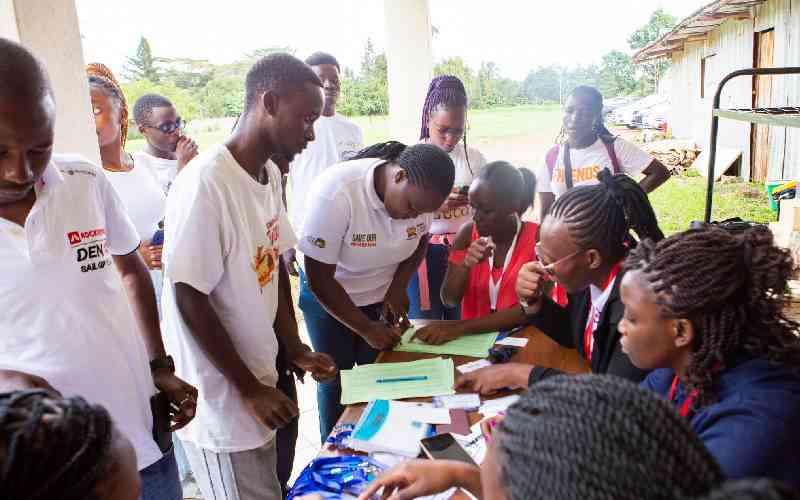
Life skills-based education is generally defined as the interactive process of teaching and learning that enables learners develop attitudes and skills that support the adoption of healthy behaviour. It is a critical element in the definition of quality education.
Young people attend universities and colleges for various reasons, among them to learn critical thinking and gain exposure to different ideas and philosophies.
Their minds capture insights on history, literature, science and math. Upon graduation, they are expected to transit seamlessly to the world of work. Unfortunately, reality follows a different script. A lot of learners do not appreciate the fact that they go to school to also prepare for life in the real world.
Harsh reality
This means there should be no disconnect between the world of academics and the job market. Learners must go the extra mile to acquire knowledge and skills that are not graded in class.
A while back, it was accepted practice for employers to take fresh graduates under their wing and teach them what they needed to know to excel at their careers. This included soft skills like communication, time management and organisational skills.
The employees then paid this back with loyalty and becoming an asset to the company.
But these days, it is mainly teaching professionals that prepare their graduates for the world of work. The harsh reality today is that many companies are viewing fresh graduates as hiring risks.
Employers do not want to spend their time and money teaching new staff the practical skills they need to move from being liabilities to becoming assets, largely because staff loyalty levels are at record lows.
Many new employees believe the grass on the other side is greener even before they have settled down in their jobs. Some graduates have even been reported to start job hunting during their probation period, and it is not uncommon to find graduates who have changed jobs more than three times in two years.
The solution
The solution to the crisis being experienced by fresh graduates and their would-be employers lies in parents, students and learning institutions appreciating the need to instil life skills while learners are still in school.
Skills associated with work, income generation and financial management must be made available to learners, even if they are not examinable.
Stay informed. Subscribe to our newsletter
Students in their final year of high school and those in college must acquire basic life skills that go beyond knowing how to prepare a CV. They should be exposed to the real and practical expectations of the world of work, not just theories.
The skills learnt are meant to help learners succeed in all aspects of life, including their academic, professional and personal spheres.
Some of the topics that should be captured in life skills workshops, seminars or classes include how to develop a healthy self-esteem, goal setting, fundamentals of leadership, financial literacy, effective communication, time management, and health and wellness. This would ensure society receives graduates who are ‘fully baked’.
The writer is a human resource specialist with Peoplelink Consultants. [email protected]
 The Standard Group Plc is a
multi-media organization with investments in media platforms spanning newspaper
print operations, television, radio broadcasting, digital and online services. The
Standard Group is recognized as a leading multi-media house in Kenya with a key
influence in matters of national and international interest.
The Standard Group Plc is a
multi-media organization with investments in media platforms spanning newspaper
print operations, television, radio broadcasting, digital and online services. The
Standard Group is recognized as a leading multi-media house in Kenya with a key
influence in matters of national and international interest.
 The Standard Group Plc is a
multi-media organization with investments in media platforms spanning newspaper
print operations, television, radio broadcasting, digital and online services. The
Standard Group is recognized as a leading multi-media house in Kenya with a key
influence in matters of national and international interest.
The Standard Group Plc is a
multi-media organization with investments in media platforms spanning newspaper
print operations, television, radio broadcasting, digital and online services. The
Standard Group is recognized as a leading multi-media house in Kenya with a key
influence in matters of national and international interest.










